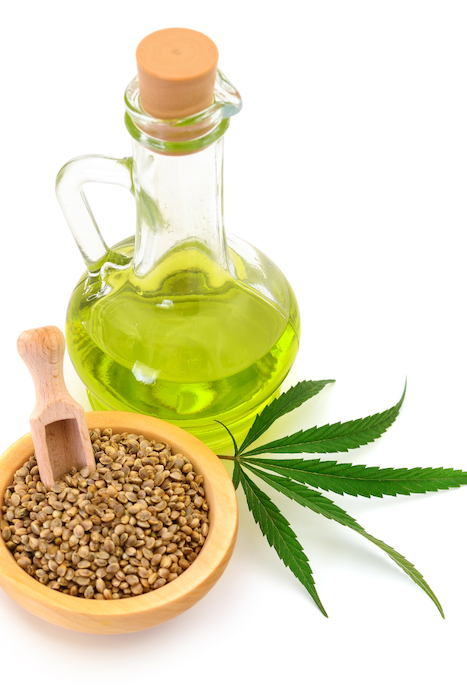Introduction
If you’ve been hearing more and more about hemp oil lately, you’re not alone. It seems like everyone is buzzing about it — and for good reason! Hemp oil has quickly become one of the most talked-about natural supplements on the market. From skin care to stress support, people are turning to hemp oil for all sorts of wellness reasons.
In this blog, we’re diving deep into everything you need to know about hemp oil. We’ll explore what it is, how it’s made, why it’s become so popular, and most importantly — what it can do for your body and mind. By the time you’re done reading, you’ll have a clear understanding of hemp oil and whether it’s something worth adding to your daily routine.
Let’s get started!

What is Hemp Oil?
First, let’s clear something up — hemp is not the same as marijuana. Even though they both come from the Cannabis sativa plant family, they are very different.
Hemp plants are grown mainly for industrial and wellness uses. They contain very low amounts of THC — the stuff in marijuana that makes people feel “high.” In fact, hemp contains 0.3% THC or less by law in the United States. That’s not enough to make you feel any psychoactive effects.
So, what is hemp oil?
Hemp oil, also known as hemp seed oil, is made by cold-pressing the seeds of the hemp plant. It’s full of nutrients like healthy fats, antioxidants, and plant-based proteins. Some people confuse hemp oil with CBD oil, but they’re not the same. CBD oil comes from the flowers, stalks, and leaves of the hemp plant and is rich in cannabidiol (CBD), a powerful plant compound.
Hemp oil might not include as much CBD or other cannabinoids, unless it’s full-spectrum hemp oil like the kind found in SomaLeaf products.
The Popularity of Hemp Oil
In the last ten years, hemp oil and CBD have become household names. What changed?
One big reason is the 2018 Farm Bill in the United States. This law made it legal to grow hemp across the country, as long as the THC levels are under 0.3%. This opened the door for all kinds of hemp products to hit the market — from oils and creams to gummies and supplements.
At the same time, more research started coming out about how cannabinoids like CBD might help with things like stress, sleep, and pain. Celebrities and influencers began sharing their hemp journeys, and wellness companies took notice.
Another reason hemp oil became so popular? People want more natural ways to support their health. Hemp oil, with its omega-3 fats and anti-inflammatory properties, felt like the perfect fit for anyone looking to feel better without turning to harsh chemicals or medications.
The Benefits of Hemp Oil
Let’s take a closer look at what hemp oil can actually do for your health. Here are some of the top science-backed benefits:

1. Supports Heart Health
Hemp oil is loaded with omega-3 and omega-6 fatty acids — the “good fats” that your body needs but can’t make on its own. These healthy fats are known to support your heart by helping reduce blood pressure, lower bad cholesterol, and keep your arteries healthy.
A study in the Journal of Nutrition and Metabolism found that the unique balance of fats in hemp oil could help prevent blood clot formation and even support overall cardiovascular function. [1]
The study also showed that people who took hemp seed supplements had improved cholesterol levels and reduced inflammation, both of which are important for heart health.
2. May Reduce Inflammation
Chronic inflammation is linked to a ton of health problems — from joint pain to autoimmune issues. One of the big reasons people turn to hemp oil is because of its anti-inflammatory properties.
Hemp oil contains gamma-linolenic acid (GLA), a type of omega-6 fatty acid that has been shown to reduce inflammation in the body. A review published in the Journal of Pharmacy Research found that GLA may help with conditions like arthritis, skin inflammation, and even PMS symptoms. [2]
This makes hemp oil a great option for anyone dealing with stiff joints, skin flare-ups, or other signs of chronic inflammation.
3. Supports Skin Health
If you’ve ever looked at the ingredients in natural skincare products, you might have noticed hemp oil popping up. That’s because it’s rich in fatty acids, vitamins, and antioxidants — all of which help nourish the skin.
Hemp oil can help moisturize dry skin, balance oily skin, and soothe redness or irritation. One study found that people with eczema who used hemp seed oil experienced less dryness, less itching, and more comfort overall. [3]
It’s also non-comedogenic, meaning it won’t clog your pores. That makes it a good choice for people with acne-prone skin too.
4. May Help With Stress and Anxiety
Feeling anxious or overwhelmed? Hemp oil might be able to help. While hemp seed oil doesn’t contain high levels of CBD, many full-spectrum hemp oils do — and that’s where the calming effects come in.
A 2019 study in The Permanente Journal showed that 79% of people who took CBD daily saw reduced anxiety levels within the first month. [4]
While more research is needed specifically on hemp seed oil and anxiety, many experts believe that the fatty acids in hemp oil also play a role in brain health and mood regulation. Omega-3s have been shown to reduce anxiety in several clinical studies.

5. Promotes Brain Health
Your brain needs fat to function properly — and hemp oil delivers plenty of it. Omega-3 and omega-6 fatty acids are important for brain cell structure, communication, and even mood balance.
A review in Frontiers in Aging Neuroscience discussed how hemp-derived compounds may support brain health and protect against age-related decline and conditions like Alzheimer’s disease. [5]
Plus, the anti-inflammatory effects of hemp oil may also help protect the brain from oxidative stress, which can lead to memory problems over time.
6. May Help Balance Hormones
Hemp oil contains a plant compound called gamma-linolenic acid (GLA), which has been shown to support hormone balance — especially in women.
According to a study in The Journal of Pharmacy Research, GLA may help reduce symptoms of PMS like mood swings, breast tenderness, and bloating. It may also support overall hormone health during menopause. [6]
Because your hormones need healthy fats to function properly, hemp oil may be a gentle, natural way to give your body what it needs.
The Best Ways to Take Hemp
There are a few different ways to use hemp oil, and some are better than others depending on your needs.
1. Topical
You can apply hemp oil directly to your skin as a moisturizer or spot treatment. It absorbs quickly and doesn’t leave a greasy feel. Great for dry patches, acne, or sensitive skin.
2. Oral
This is one of the most popular methods. You can take hemp oil as a supplement — either in a softgel or by using a dropper under your tongue. This allows the nutrients to enter your bloodstream and support your body from the inside out.
Tip: Look for cold-pressed, unrefined hemp oil for the highest quality.

3. Smoking or Vaping (Not Recommended)
While some people use hemp or CBD products by smoking or vaping, this comes with health risks. Studies have shown that inhaling any form of smoke — even hemp — can irritate the lungs and harm long-term respiratory health.
The American Lung Association recommends avoiding all forms of smoking and vaping, including hemp, due to risks of lung disease and other respiratory problems. [7, 8]
Final Thoughts
Hemp oil is more than just a wellness trend — it’s a powerful, plant-based supplement with real benefits. From heart and brain health to glowing skin and hormone support, it offers a natural way to nourish your body.
Now that you know what hemp oil is, why it’s become so popular, and how to use it, you’re in a great spot to decide whether it’s right for you.
Just remember: always choose high-quality, full=spectrum hemp oil from a trusted source — and if you’re ever unsure, talk to your doctor first.
If you have any questions about specific products, please feel free to reach us at info@somaleaf.com





